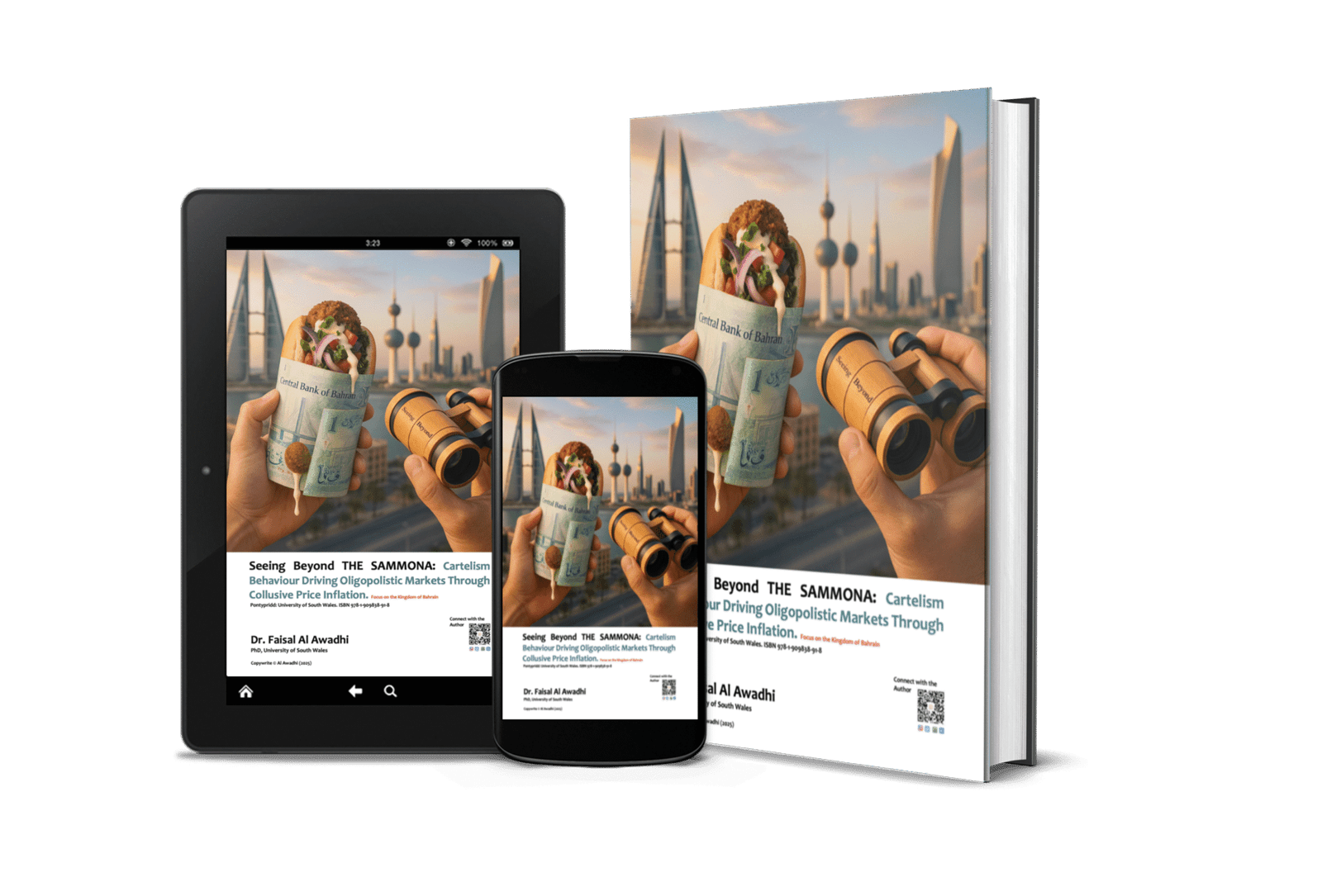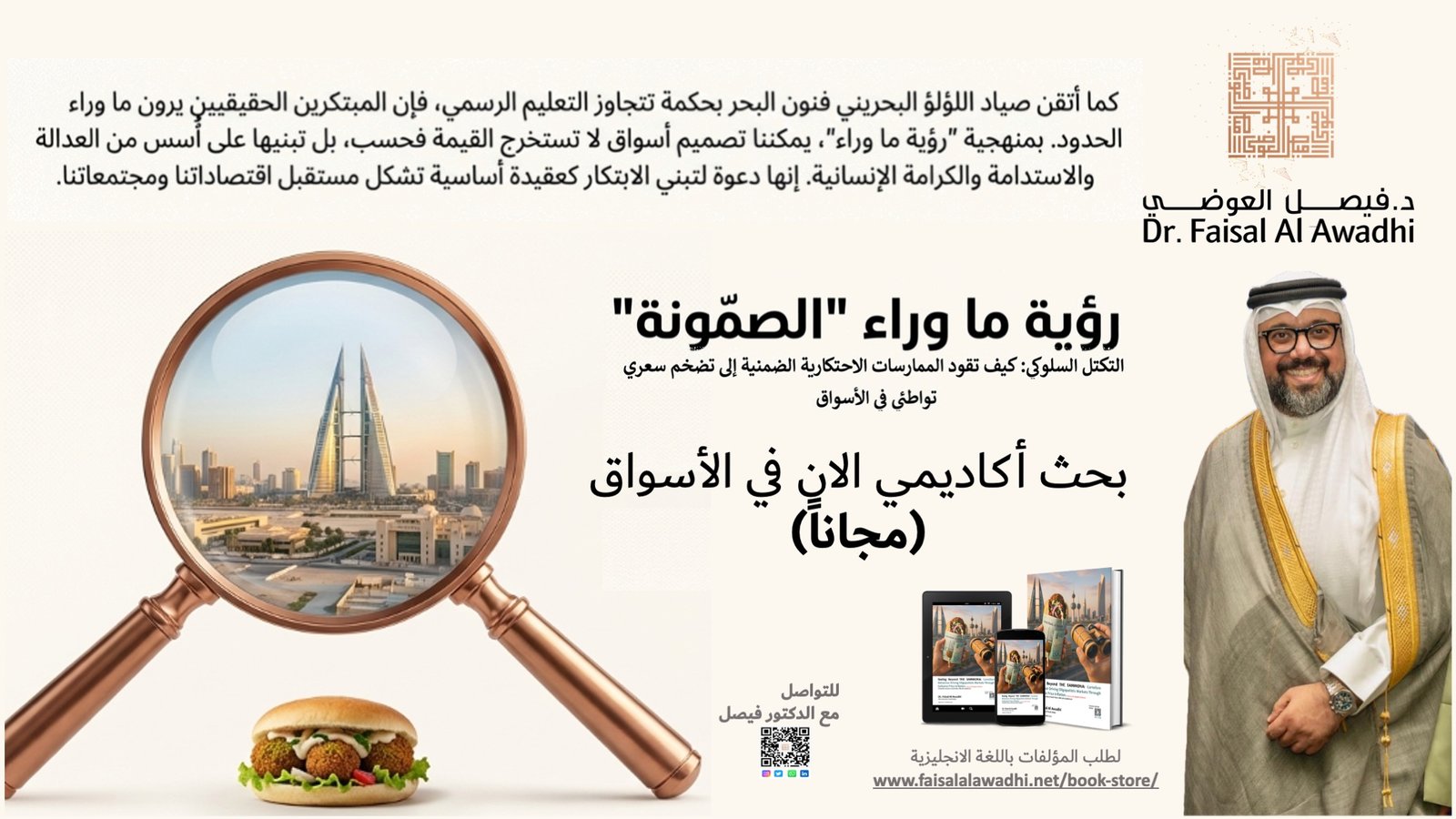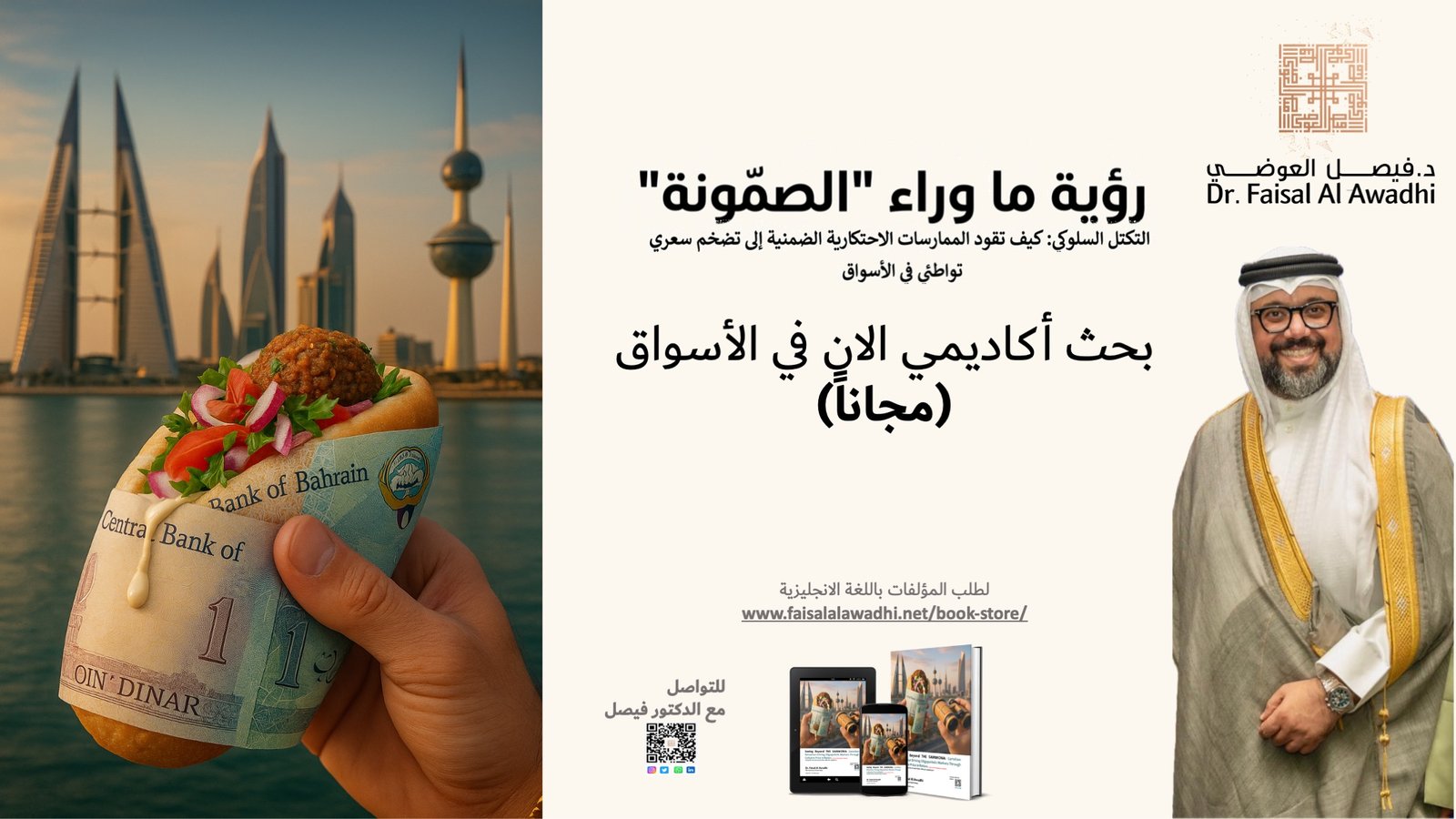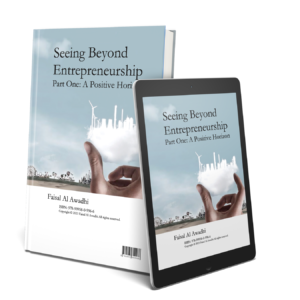Description
Context and Significance
The Gulf economies have historically grappled with the tension between free market dynamics and state-imposed regulatory safeguards, especially within consumer-facing industries. The Kingdom of Bahrain, despite its progressive stance on market liberalization, has witnessed a silent evolution in its pricing mechanisms that risks undermining the economic dignity of its middle and working classes. Among the myriad indicators of this trend is the case of the humble falafel sandwich specifically, the variety known locally in Kuwait as the “SAMMONA” a term derived from the Arabicized name for the sandwich bread or hotdog bun in which falafel is typically served in Kuwait. While seemingly trivial in its singularity, this product offers a unique aperture through which to examine more profound distortions in pricing logic and regulatory absence.
This research presents the falafel Sammona sandwich not merely as a food item, but as an artifact of legal memory and socio-economic significance. The historical establishment of the Sammona Law Under the Kuwaiti Ministerial Resolution No. 44 of 1984, the Ministry of Commerce and Industry established specific price ceilings for light meals, including falafel sandwiches using the sammona bun, setting a legal maximum of 100 Kuwaiti fils (0.100Kuwaiti Dinars) per sandwich. This decree under the late Amir His Highness Sheikh Jaber Al-Ahmad Al-Sabah represents one of the most striking examples of anticipatory governance in the modern Gulf region. Although the decree regulated the price of a modest falafel sandwich served in a Sammona bun at no more than 100 fils a matter that, in administrative terms, would ordinarily fall far below the domain of high-level statecraft, His Highness personally insisted on its promulgation. Contemporary accounts preserved in Kuwaiti public discourse recount that when asked why a Head of State would concern himself with the price of an item so humble that even mid-level ministry officials might overlook it, his reasoning was unequivocal: if inflation were ever to spiral, or if market opportunism were ever to compromise the dignity of ordinary citizens, there should remain at least one food item universally accessible to all, rich and poor alike, protected by the moral responsibility of the State. This was not an act of bureaucratic micromanagement; it was an act of visionary stewardship that “saw beyond” at the Time. It reflected a rare ability to see beyond the immediate triviality of the object in question, toward its long-term symbolic and socio-economic significance. Such foresight demonstrated by the late Amir Sheikh Jaber Al-Ahmad Al-Sabah stands as an early and powerful embodiment of the ‘Seeing Beyond’ vision that this research advances. His deliberate choice to secure a 100-fils ceiling not only stabilised prices for over four decades but also fostered a public understanding of fairness, teaching successive generations that unjust or inflated prices are neither normal nor acceptable. This interpretation gains empirical reinforcement through Kuwait’s long-standing Sammona framework, where a modest statutory ceiling evolved into a cultural expectation of fairness. The endurance of that model demonstrates that when leadership articulates a clear fairness anchor, market participants reorient themselves around it. This aligns directly with the Seeing Beyond framework, which emphasizes pre-emptive interventions that anticipate distortions before they manifest.
Although no archival transcript or official royal proclamation documenting the Emir’s exact words has been located, the account of Sheikh Jaber Al-Ahmad Al-Sabah’s rationale for fixing the Sammona price at 100 fils is consistently reported across reputable Kuwaiti press sources and widely embedded in the country’s collective socio-historical memory, giving the narrative interpretive legitimacy as a culturally authenticated explanation of his visionary intent (Arab Times, 2025; Kuwait Times, 2021). The egalitarian impact of that vision remains visible today. As recounted in informal reflections with Bahraini professionals, including individuals of high rank and considerable means, the 100-fils Sammona sandwich is consumed in Kuwait not because it is inexpensive but because it symbolizes fairness, since of care and a shared national ethos: a space where all social classes partake in the same everyday experience. In this sense, the Sammona Law established a shared culinary heritage, a symbol of price justice, and a lasting expression of social cohesion. Its impact is evident in the way both affluent Kuwaitis and residents of modest means continue to enjoy this protected food item, not out of economic necessity, but as an act of cultural identity. This reveals a deeper philosophical dimension to the decree: it did more than safeguard affordability; it upheld principles of equality and fairness, and helped nurture a collective commitment to resisting price inflation.
The contrast with Bahrain’s contemporary pricing environment is analytically instructive. A comparable falafel or hummus serving in Bahrain can retail for prices exceeding 3.2 BHD, representing a structural deviation from cost-based logic and reflecting the kind of informal price escalations, tacit mimicry, and tacit collusion that this research investigates. The absence of an equivalent protective benchmark in Bahrain has allowed market forces, shaped by platform visibility, expatriate cost asymmetries, and symbolic pricing cues to form a silent, self-reinforcing pricing regime markedly detached from true production costs. In this contrast, the depth of HH Sheikh Jaber’s foresight emerges with particular clarity: he pre-empted, decades earlier, the kinds of oligopolistic drifts and price-anchoring distortions that the present work identifies and analyzes.
It is for this reason that the Sammona Law finds a natural intellectual home within the researcher’s Seeing Beyond concept that guides this research. The framework rests on the premise that meaningful change arises not from reacting to visible symptoms but from perceiving the latent structures, informal behaviours, and symbolic meanings that shape them. HH Sheikh Jaber embodied this principle long before the terminology existed. His intervention signalled an intuitive grasp of what this research formally theorises: that markets are not governed purely by supply, demand, or cost, but by symbols, collective expectations, and social interpretations, all of which can drift into inequitable equilibria if left unguided. Thus, the Sammona Law is not included in this research as an anecdote but as a historical manifestation of the very analytical lens this study advances. In this sense, the late Emir was, in effect, “Seeing Beyond” the falafel sandwich itself, beyond its cost, beyond its simplicity, toward the systemic risks and social distortions that could unfold in its absence. Accordingly, his example provides both an intellectual precedent and a normative compass for the present inquiry. It demonstrates that safeguarding economic fairness in seemingly minor domains is not a trivial administrative matter but a sovereign responsibility capable of preserving social cohesion, mitigating oligopolistic drift, and protecting everyday dignity. The Kuwaiti experience thus serves as both a conceptual inspiration and a regulatory counterfactual for analysing Bahrain’s current pricing structures and the tacit collusion patterns evident within them.
This policy, still symbolically potent, reflected the Kuwaiti leadership’s commitment particularly during the tenure of the late Amir of Kuwait to equitable access to food amidst rising inflation. In contrast, the Kingdom of Bahrain, lacking an equivalent policy framework, has allowed a free-market drift that sees the similar falafel sandwich is sold at 3.200 BHD, as evident in recent delivery platform listings (see Figure 1). This translates to over 3,200% increase over the price protected by Kuwaiti law. For completeness, we note that some sandwiches retail for as little as BHD 0.350; although such prices may still embed 200–300% mark-ups over ingredient cost, they are typically offered by modest, street-food outlets which even have lower costs of production, and do not constitute a policy problem in our study, so we exclude them from the evidentiary base.









